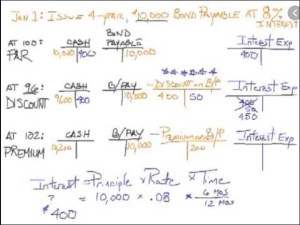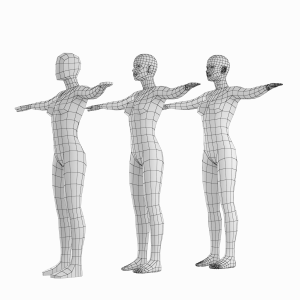
We are bipedal creatures. We are symmetrical by nature. Two eyes, two hands, back and front, left and right. Our fundamental concepts reflect this: good and evil, dark and light, the Jedi and the Sith. It should be no surprise that multiple cultures–the Chinese, Indian, and Renaissance Italians–created counting systems built around two entries.
One of my favorite authors wrote a series where the people on another planet organize everything around threes instead. Two is infelicitous; you need three to balance. The eighth birthday is unlucky, the ninth harmonious. Scientists have to build models factoring in three. Dinner parties are a nightmare. It is possible to conceive thinking systems not built around two.
Or, imagine, if sentient creatures had five limbs like starfish. Instead of left and right, you’d build your counting around pentagons.
The Magical T
Human accounting is much simpler. We build everything around “T-accounts.” All you ever have to remember is that there’s always a left and a right side. It’s why accounting feels so elegant. Suppose you list things you own.
Cash
1000
You want to buy something, say a laptop or a car.
Cash
-500
Stuff I Own
+500
Only this time, you draw it out, using T accounts:

No matter how complicated your life gets, all you ever need to remember is that left and right have to balance. You are Themis, the goddess of justice with the scales; you are Libra. all you ever have to do is find the balance. When a problem becomes sophisticated, you simply create additional T-accounts, knowing that the light must balance with the dark.

Forward-Thinking People
Humans are also planners. We think ahead; that’s not so unusual. Squirrels build inventory for the winter. Birds create nests. Lemmings… well…lemmings buy GameStop. Planning is biological, it’s in our DNA. If all you ever kept track of was what goes in and out, without thinking of the future, you’d only need single-entry accounting. Cash in, cash out. But we future-thinking creatures borrow money, intending to pay it back. Or we make loans to our family and friend, trusting them.
Debit comes from de+habere, subtracting from what you have.
Credit comes from credere meaning to have confidence in, to trust. We trust a friend will return our money in the future because we think of futures.
All you have to remember is:
Debit=Left
Credit =Right
Stuff you have will go on the left-hand side. Stuff you owe will go on the right-hand side. Stuff you have is called an Asset, which comes from the Latin “to have enough.” Stuff you owe is a Liability, which comes from Latin “to bind, by obligation.” I will gladly pay you Tuesday for a hamburger today.
Cosmic Balance
The idea of the scales, of weighing ourselves, crosses many cultures. The Egyptians visioned that in the afterlife your heart would be placed on a scale, set against the feather of Maat, truth and justice. The Catholics envisioned the left and right hand of God, with the patriarch setting the sheep on the right, goats on the left.
The Chinese view, the yin/yang, also encapsulates that cosmic balance sheet. Jennifer Johnson of Ledger Light, who linked the yin/yang to accounting, explains that the dots represent contra-accounts and that the line down the center is the Chart of Accounts.
The counting of left and right, the balance sheet listing of assets and debits, is so pervasive that there are dozens of sites that gives examples showing how you can T-account life itself. Some talk about family as the asset and time as the liability. I don’t think that’s right. Time is on the Income Statement because it’s not static.
Some ministers apparently do their own bookkeeping:

It’s fascinating to envision the heart as a Fixed Asset and the soul as Goodwill. However, I suspect this is an accountant-wannabe just using the words; everyone knows that Goodwill has to be amortized (i.e. reduced systematically over time). That’s for corporations merging with each other, not “real” human good will. On the other hand, Goodwill is the thing that’s there when all the other Assets are accounted for, so maybe that is a corporation’s Soul….?
The Balance Sheet–whether it’s for financial accounting or philosophical accounting–is a view that is frozen in time. Like a cosmic selfie. You are here. What do you amount to? If we take what you have and subtract what you have borrowed, shall you have Net Worth? The Net is the difference between left and right. “Worth” is from the Old Norse that might be linked to “turning” or “becoming.” After we weigh ourselves, what shall we become?

When all else fails, just draw a “T.”


Debit-left, credit-right. Lemmings buy GameStop😎